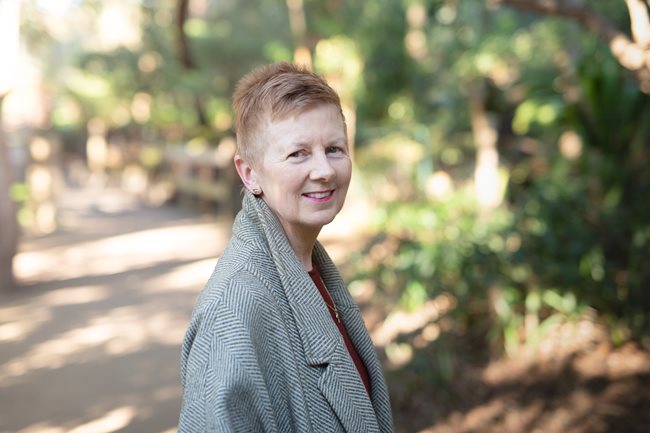Wendy Riley on winning an SoA Award at the height of lockdown in 2020

Most of the world was in lockdown when you won the ALCS Tom-Gallon Trust Award last year for your short story, ‘Eva at the End of the World’. What was it like for you at the time, based in Australia?
It was a very strange time for everyone. When the result was announced, Victoria was entering a strict four-month lockdown, including curfew. The win was extra special because of all the general gloom surrounding it. However, Australia has escaped relatively lightly in terms of the pandemic, so the restrictions have been worth it.
What’s it been like for you since, both in terms of the impact of the award and your ability to work?
I’m lucky to work from home, so my supply of agency work has kept coming. In fact, I’ve been busier than ever, due to so many businesses shifting to online sales and needing website, blogs, whitepapers and content.
I haven’t had any luck yet getting ‘Eva’ published – she’s part of a short story collection that won an Australian literary award in 2019, but I think she/they might be an acquired taste! You can’t put a value on the feeling a Tom-Gallon win gives you though, it’s priceless. Last year I also won a mentoring package in the Spotlight First Novel Award, for another manuscript, so it was a rewarding year. A restructure and rewrite is now in progress.
The biggest challenge of the last year was having my son home and struggling with remote learning. He hated it and so did I. This scenario keeps playing out – as I write, Melbourne is entering a seven-day snap lockdown due to an outbreak of the Indian variant from hotel quarantine. So, back to home schooling, bad tempers, bad hair and all-round not-where-you-want-to-be-ness!
You have a day job writing for businesses, on top of your own creative writing. How do you balance the two different mediums? Does one compliment the other?
I think I’ve reached a stage where one does compliment the other, but it’s been a long time coming. Back at uni, I struggled to write the academic way, then – training as a journalist – I had to unlearn all that. Moving into creative writing, I had to rework the journo language, then entered a whole different world of business writing which – at the start – I thought I’d never master. I’m constantly learning, constantly adapting my language. Now I feel quite comfortable transitioning between writing styles – which is pleasing. One day I can write a chapter of the novel, the next day write a blog or ebook for industry. Which isn’t to say I don’t crave lots of empty space to do my own stuff – I grab it whenever I can!
What was it about this story that drew you to the short story form?
‘Eva’ was a natural choice for this form. I knew for a long time I wanted to write about a Syrian child trapped in the destruction of Aleppo but, not having first-hand knowledge of these events – or being Syrian – it could only be an imagined snapshot. A few thousand words gave me space to explore and develop the theme – a child’s unheard fury about the obliteration of her world and future.
I recently saw a news video of a 10-year-old Palestinian girl facing her destroyed neighbourhood. She said: “I want to be a doctor or anything to help my people, but I can’t. I’m just a kid. I don’t even know what to do. I’m just 10.” Children routinely face these unthinkable situations – yet are forced to think their way through them.
What do you love about short stories?
They are a perfect medium to convey multiple themes and feelings in a manageable way. Because you have strictly limited words, every one has to count. No baggage allowed!
I’ve written other recognised short stories with refugees as central characters – an Afghani boy seeking safe harbour; a Kurdish girl in Australian detention. I know it’s a contentious area when writing through the eyes of another culture; I wouldn’t be game to try it in novel form. But there’s something wonderfully democratic about short stories – anyone can write one, on any theme, using any structure. In this context, incursions into other cultural territories are valid, I think, if done with sensitivity and respect. Short stories let the imagination roam, which has to be good.
What is one short story you couldn’t live without?
I’d have to say ‘The Stilt Fishermen of Kathaluwa’ from Foreign Soil – a short story anthology by contemporary Australian writer Maxine Beneba Clarke. It shows the absolute desperation of an unwanted refugee, and the hopelessness of the Australian woman trying to help him. Beautiful writing with simplicity, clarity and pain.
The ALCS Tom-Gallon Trust Award (£1,000) – part of the SoA Awards – is for a short story written by an author who has been accepted for publication at least once before. It is generously supported by the Authors' Licensing and Collecting Society (ALCS).
Graduate of the London School of Economics, Wendy Riley has worked extensively as journalist and business writer, both in the UK and Australia. Winner of the ALCS Tom-Gallon Trust Award 2020 and Spotlight First Novel Competition 2020, Wendy’s short stories have won the HG Wells Short Story Competition, AAWP Chapter One Prize and Ethel Webb Blundell Literary Awards, also being highly commended in the Bridport and Moth prizes. Brought up in the UK, she now lives in bayside Melbourne, Australia, with her husband and son.